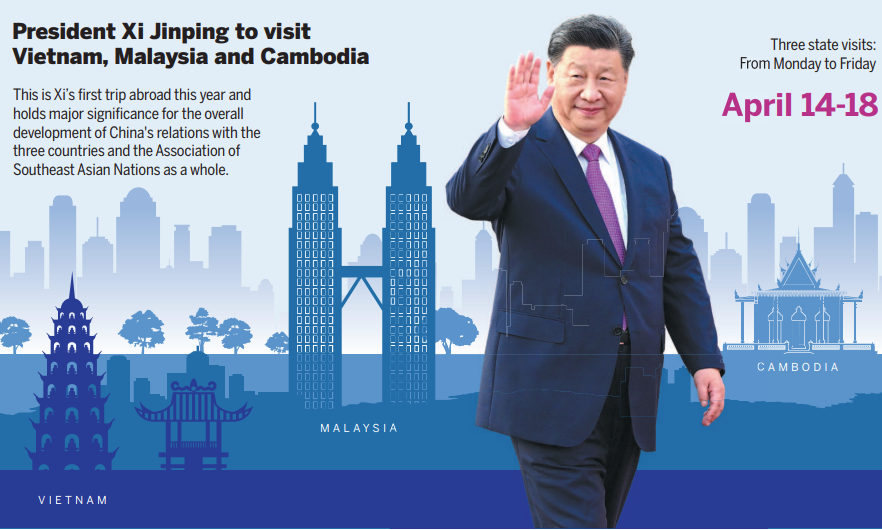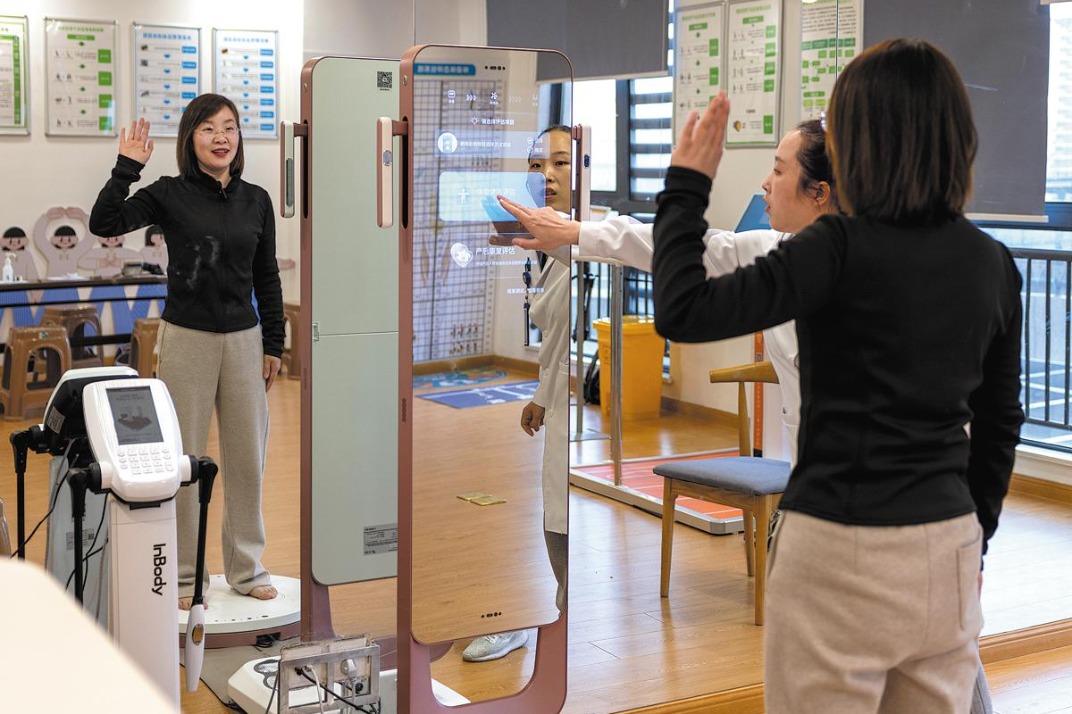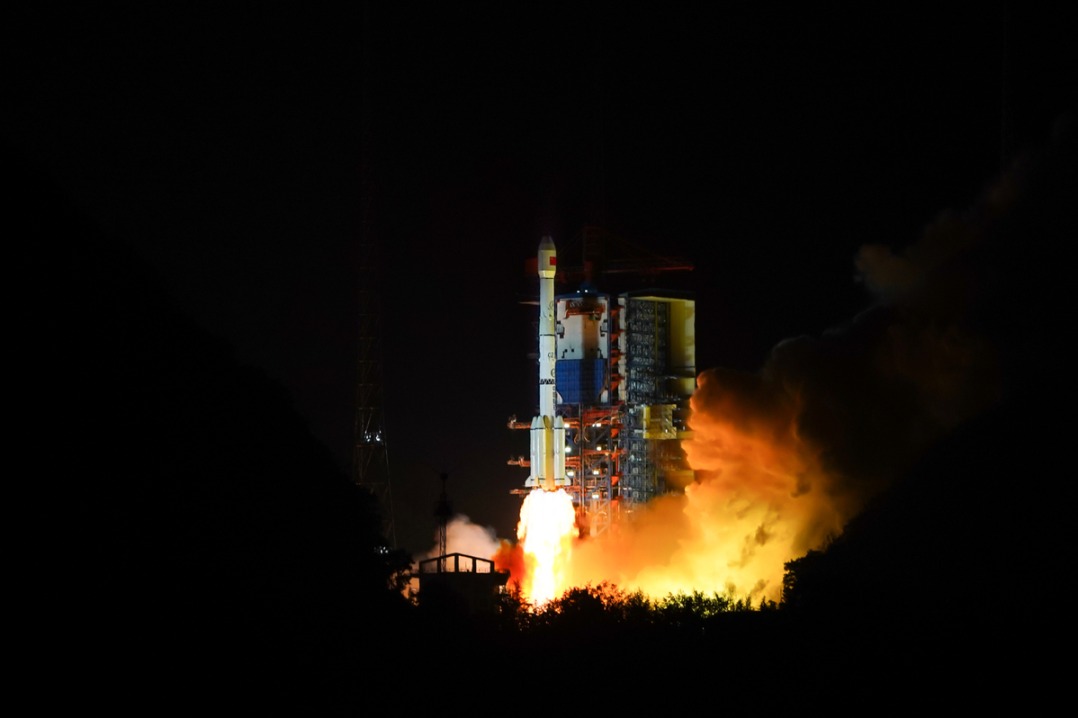Neighbors prioritized in diplomacy
Visit: Role of regional economic alliances to increase


As President Xi Jinping starts a three-nation visit to Southeast Asia on Monday, observers at home and abroad said the latest move of head-of-state diplomacy is a testament to China's long-term commitment to deepening all-around cooperation with neighboring countries in order to safeguard peace and stability in the region and beyond.
The five-day trip, during which Xi will visit Vietnam, Malaysia and Cambodia, is also a timely and critical one for boosting the confidence of countries in the region and providing more certainty for regional economic development amid the chaos brought by the United States' launch of a tariff war, they said.
Gu Jiayun, vice-dean of Beijing Foreign Studies University's School of Asian Studies, said that choosing Southeast Asia as the destination for this year's first head-of-state visit, days after Beijing held a central conference on work related to neighboring countries, shows the increasing importance attached by China to neighboring countries.
Neighboring countries have been China's priority in its diplomacy. The nation has engaged in cooperation with neighboring countries in line with the principle of amity, sincerity, mutual benefit and inclusiveness put forward by Xi in 2013 to guide the country's neighborhood diplomacy.
Now China is the largest trading partner of 18 neighboring countries. China and the Association of Southeast Asian Nations, a political and economic alliance of 10 member states, have been each other's largest trading partners for five consecutive years.
"The trip also demonstrates China's determination to continue to deepen all-around cooperation, strengthen exchanges in various fields, and jointly uphold peace and stability with ASEAN countries," Gu said.
Luo Yongkun, a research fellow at the Shanghai Academy of Social Sciences' Institute of International Relations, said the cooperation between China and ASEAN holds remarkable significance in stabilizing the region in a world with notably rising uncertainty and instability.
In the more than 30 years since the establishment of dialogue relations, China and ASEAN have enjoyed steadfast, steady and robust cooperation and have become a model, with the most dynamic and fruitful cooperation in the Asia-Pacific region and the world, he said.
According to Luo, the Belt and Road cooperation between China and ASEAN countries has also delivered tangible benefits to local people.
Efforts to stabilize China's economic relationship with the region will not only benefit the two sides, but also inject stability into the economic development of the whole Asia-Pacific region, he added.
Gu said that China and neighboring countries, including Southeast Asian nations, share common interests, concerns and values in the political, economic, trade, security, cultural and other fields.
"The coming into effect of the Regional Comprehensive Economic Partnership and the substantial conclusion of the ASEAN-China Free Trade Area 3.0, for example, have demonstrated neighboring countries' desire to work together with China to promote regional economic integration and address global economic uncertainties," he said.
Muhammad Habib, a researcher at the Department of International Relations of the Centre for Strategic and International Studies in Indonesia, said that President Xi's visit to Southeast Asia is timely and critical amid the ongoing tariff tensions.
"It provides an opportunity to reaffirm that this part of the world will not retreat from its commitment to multilateralism and a global open economy," he said, adding that the visit also will allow the region to better coordinate responses to the trend of protectionism.
"It is in our collective interest to formulate international norms on nonharmful means for realizing global fair trade. China and Southeast Asia already have many platforms to do that, including various ASEAN-China economy-related ministerial meetings, the ASEAN-China 3.0 FTA, and the RCEP. It is time to utilize them," he added.
Gu, the Beijing Foreign Studies University vice-dean, said that if Washington continues with its willful actions of practicing unilateralism and protectionism, challenging the global trade system, the role of regional economic alliances, which have advantages such as cultural similarities and strong economic complementarity, will only become more prominent.
"By reducing trade barriers, optimizing resource allocation and coordinating policies, regional economic alliances can better maintain the stability of industrial and supply chains, enhance regional economic competitiveness and strengthen the ability to resist external risks," Gu said.
As important drivers of global economic recovery, China and ASEAN will be able to uphold the multilateral trading system and help stabilize the regional economy through strengthening openness and cooperation, thus maintaining regional peace and stability and boosting confidence in global economic recovery, Gu added.
Luo, from the Shanghai Academy of Social Sciences, said, "It is stability and certainty for the future and for development that all parties are expecting from the Chinese president's visit."
He added that during the trip, the principle of amity, sincerity, mutual benefit and inclusiveness guiding China's neighborhood diplomacy will help pool further consensus between China and neighboring countries in focusing on development and jointly building a peaceful, safe and secure, prosperous, beautiful and amicable home.
mojingxi@chinadaily.com.cn
- CRCF expands international aid work
- Rural development funds improve lives nationwide
- China and Vietnam celebrate cultural exchange along border river
- Macao SAR to push forward appropriate economic diversification: chief executive
- China issues blue alert for strong gales
- Macao SAR to strengthen coordination mechanisms: chief executive



































